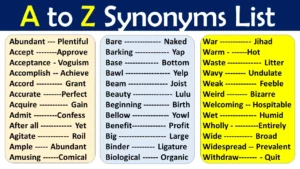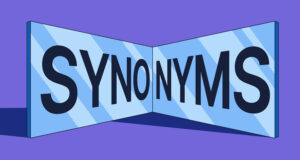Introduction
The concept of “free” is ubiquitous in our daily lives. We encounter it in various contexts, from promotions and giveaways to fundamental principles of society. But what exactly does “free” mean? How does it function in language and society, and what are its synonyms and related terms?
In this article, we delve into the definition, meaning, and synonyms of the word “free” as provided by Vocabulary.com. We aim to unravel the multifaceted nature of this seemingly simple word.
Definition of “Free” According to Vocabulary.com
Vocabulary.com defines “free” as an adjective with several meanings and uses:
- Not Imprisoned or Confined: When referring to a person or an entity, “free” implies a state of not being imprisoned or confined physically or metaphorically.
- Not Subject to Payment: “Free” can also mean something that doesn’t require payment. In this context, it often relates to things that are given without charge.
- Unconstrained or Unrestricted: “Free” is used to describe a state of being without constraints or restrictions. It signifies autonomy and liberty.
- Liberated or Released: In certain contexts, “free” denotes the act of liberation or release from captivity or constraints.
- Generous or Magnanimous: Sometimes, “free” can describe a person’s nature or actions, suggesting generosity and willingness to share without expecting anything in return.
- Available Without Obstruction: “Free” can indicate that something is readily accessible or available without hindrance.

Meaning of “Free” in Everyday Life
Freedom is a fundamental value in many societies worldwide. The concept of “free” plays a pivotal role in understanding this value:
- Personal Freedom: In the context of personal freedom, “free” signifies the absence of coercion or control over an individual’s choices. It’s the ability to act and make decisions independently.
- Economic Freedom: In economics, the word “free” is used to describe markets or trade practices that are open and unrestricted, often characterized by minimal government intervention.
- Free Speech: Freedom of speech is a cornerstone of democratic societies. It allows individuals to express their thoughts and opinions without censorship or fear of reprisal.
- Free Will: Philosophy and psychology often explore the concept of free will, which relates to a person’s ability to make choices independently, without external determinants.
- Free Education and Healthcare:Some societies offer free education and healthcare services, meaning they are available without cost to the individual. This reflects a commitment to equal access to essential services.
Synonyms of “Free” According to Vocabulary.com
- Gratis: Often used interchangeably with “free,” “gratis” specifically refers to something given without charge or payment.
- Unconstrained: Similar to “free” in the context of lacking constraints or restrictions.
- Autonomous: Describes independence and self-governance, akin to the freedom associated with “free.”
- Liberated: Conveys the sense of being set free from captivity or limitations.
- Generous: Suggests a willingness to give or share freely, often associated with a magnanimous nature.
- Accessible: Refers to something that is readily available without obstruction.

FAQs
What is the origin of the word “free”? The word “free” has Old English origins, coming from the word “freo,” which meant “not in bondage, noble; joyful.”
How does the concept of “free” relate to human rights?
The concept of “free” is closely tied to human rights, particularly the right to freedom and liberty. It encompasses freedom of expression, freedom of association, and freedom from discrimination.
Can “free” have negative connotations?
Yes, depending on the context, “free” can have negative connotations. For example, if something is offered for free, it might raise suspicions of hidden costs or low quality.
What are some famous speeches or quotes about freedom and being “free”?
Many historical figures and leaders have delivered speeches about freedom and being “free.” One of the most famous quotes is from Martin Luther King Jr.: “Free at last, free at last, thank God Almighty, we are free at last!”
How does “free” differ from “freedom”?
While “free” is often used as an adjective to describe something without constraints, “freedom” is a noun that represents the state of being free. “Freedom” is a broader concept that encompasses various aspects of liberty and independence.
Conclusion
The word “free” may seem simple, but its meanings, connotations, and synonyms are vast and multifaceted. It is a word that holds immense significance in our lives, from our personal freedoms to our economic systems.
Understanding the various dimensions of “free” helps us appreciate its role in language, society, and culture. Whether it’s the freedom of speech, a complimentary gift, or the absence of constraints, “free” remains a concept that resonates with people worldwide.